辣太后: A Conversation with Jane and Denner of Empress Hot Sauce
plus Alishan wasabi, vegetarian recommendations in Taipei, and an Asian vegetable seedling sale
This is Yun Hai Taiwan Stories, a newsletter about Taiwanese food and culture by Lisa Cheng Smith 鄭衍莉, founder of Yun Hai. If you aren’t yet a subscriber, sign up here.
This week, I’m publishing a conversation I had with Jane Chen and Alex Denner, the founders of Empress Hot Sauce, who share their take on contemporary Taiwanese food and what it’s like to be a contributor to the current moment. They also share their favorite vegetarian and vegan spots in Taipei, because, yes, it is a hot bed of plant-based cuisine. Finally, scroll to the end of the newsletter for a jam-packed Asian American and Pacific Islander Heritage Month (May) with details on four upcoming events in NYC and SF, including an heirloom Asian vegetable seedling sale and two major Taiwanese cultural events we’re participating in.
At Yun Hai, we strive to represent folks who are shaping Taiwanese food and identity in Taiwan right now. As a mixed-Taiwanese American who grew up in the US, I became intimately familiar with the brands and products that my mom used (“always get the blue can of bean sauce”). While those brands are still standards for me, there’s so much more out there, not to mention all that has developed and resurfaced in contemporary Taiwan.
Empress Hot Sauce is one of those brands—they make a line of Western-style fermented chili sauces to rival the best, using Taiwan-grown produce and chilis. They’re part of a new wave of international food in Taiwan that includes Taiwanese-style Western vegan brunch, NY Pizza in the heart of Taipei (IG: lnypizzeriazh), and a farm-to-table dining club led by our soy sauce brewers, Yu Ding Xing. Empress is a huge hit, stocked at many boutiques and eateries across the island.
Of particular interest to us here at Yun Hai: in addition to serving their domestic interest, Empress intends to have an international impact, bringing awareness to Taiwanese agricultural production and demonstrating the wide applicability of Taiwanese ingredients beyond local food.

For example, Empress’s Smokey Hibiscus sauce is made using hibiscus flowers and smoked longan. I’ve always thought of smoked longan as an intense Taiwanese treat that occupies a similar place in the cuisine as salty licorice in Holland (fyi I’m a card-carrying licorice and longan lover). Smoked longans don’t taste like licorice, but they are also kind of old-fashioned, definitely an acquired taste, and open the mind to the possibilities of what a sweet treat can be. After Empress discovered that the acacia wood used to smoke it has similar properties to mesquite, they transformed it into a sauce that was easy to approach, even for those uninitiated to the delights of smoked fruit.
We’ve been the official US distributor of Empress Hot Sauce since 2021, and are proud that it’s stocked at places like Onggi, Bernal Cutlery, Formaggio Kitchen, Providore Fine Foods, and Big Night. Last month, I hopped on the phone with Jane Chen and Alex Denner, founders of Empress, to talk about the current moment in Taiwanese food and how they fit into it, including vegetarianism in Taiwan, agricultural hyper-regionalism, Alishan Wasabi, small farmer perspectives, and more.

Lisa Cheng Smith: How did you find yourselves working in food in Taiwan?
Alex Denner: My background is as far away from food as possible. I was a CPA, dreaming of what my life could be outside of the office. Realistically, I didn’t think food production was ever on the table, but the opportunity presented itself. I call it our mini quarter-life crisis.
We didn't want to be pigeonholed into our respective industries for the next five, ten, or fifteen years. So, I floated the idea to Jane: why don't we quit everything and go back to Taiwan. I knew she always wanted to return and establish a company to help market Taiwanese companies to international audiences.
I wanted to do a complete 180. I didn’t know what I was going to do, but I knew it wasn't going to be accounting. So, I gave myself a six month sabbatical, and four and a half years later, we're here.
Jane Chen: I grew up in Taiwan and would come back every winter break and see all this awesome stuff that people were making in Taiwan. We were living in New York at the time, and I never understood why more Taiwanese products weren’t making it to the US, despite being high quality, having a great user experience, and showing tons of creativity.
In my previous life I was focused on building customer experiences in the financial space to allow customers to adopt new things more easily. This got me thinking about how I could use this expertise to support Taiwanese talent, with the core purpose of telling a different kind of Taiwanese story to the American audience through better customer experiences.
Lisa Cheng Smith: When did you move to Taiwan?
Alex Denner: We landed July 1st, 2018. I remember the time of year because it was unbearably hot. I landed in long sleeves and pants, and immediately regretted it when the airplane door opened.
After a year or so of studying Chinese, I gave myself the space and freedom to experiment with food. I got into fermenting and kombucha making, and it spiraled into making hot sauce.
Jane came home one day, and I was juicing a pomegranate. I had gone out to a store that sold pomegranates and had sourced a specific juicer. She asked why are you spending all this effort to make pomegranate juice? I told her I had an idea for a hot sauce that would be a version of Sriracha with a more nuanced flavor.
And, that's my long and winding journey to becoming a hot sauce producer. But our scope is getting larger. Hot sauce is just our first step.
Jane Chen: Denner would go to the markets every morning—we were living in Shilin at the time— and pick up fruits and try to make different kinds of kombucha for fun. I was running out of a mango habanero sauce I had from the States, so he made a fermented hot sauce with leftover mango he had. We gifted it to friends and they raved about it. We thought they were being way too nice.
Alex Denner: I believe that to this day. They’re still being too nice.
Lisa Cheng Smith: But then they were like, no but srsly can we order it? can you deliver in a week?
Alex Denner: That's exactly what happened. Around Christmas, people were looking to get gifts for their relatives or friends. From giving it to friends and family, it really snowballed into Empress, which we launched about six months later.
We came out with three sauces and sent one hundred samples out in Taiwan and another hundred out internationally for feedback. We wanted to make them acceptable to both a Taiwanese and international palate.
Lisa Cheng Smith: How did the sauces have to change to appeal to Taiwanese vs. American tastes?
Alex Denner: We initially made them a lot spicier, but the reaction we got from within Taiwan was that they were too spicy. That one critique helped us hone in on our flavors, which shine so much more now. You really taste the core ingredients, and the spice, though still formidable, isn’t overwhelming.
Jane Chen: And the layers, right? That’s part of your design process as well. There are supplementary elements that work hard. Goji and ginger pump up the mango, but also take away some of the sweetness.
Lisa Cheng Smith: Jane, you mentioned that you were really interested in finding a way to tell Taiwanese stories to international audiences. How does Empress relate to this goal?
Jane Chen: So I came back, started a consulting firm and helped a couple of brands land their consumer tech products in the US. One of them is still in the top five sellers on Amazon for their category. It was a cool experience; I got to know these really smart Taiwanese people and how they think about growing their impact on Taiwanese identity abroad.
As Denner was developing his hot sauce idea, I was planning to help him out with branding and marketing. But then I realized that this product does exactly what I was hoping to achieve—share Taiwan in a different way to the global audience—and the opportunity to do it through food was a dream. Taiwan tech is amazing, and there are really smart people working on it. But one thing that I don't think people know enough about is Taiwanese food and its agricultural prowess.
Lisa Cheng Smith: I would love to hear your perspective on what contemporary Taiwanese food culture is like, and what's resonating with you in the current moment.
Jane Chen: I think the most exciting food trend here in Taiwan is the breadth of our vegetarian options and the technology, food science, and capital behind that. For example, we partnered with a brand called Space Bao (IG: spacebao.official). They make vegan 生煎包 sheng jian bao (pan fried dumplings), which are often made with pork, and one of their investors is Hoya Foods, which is a vegan meat brand that's been in Taiwan since the 1980s. It's an old family name. So, you have this older vegan meat company investing in this new bao that's very trendy and very delicious. And then within that vegan meat product, they're using a product called Lypid, which is a Taiwanese-founded startup that makes vegan fat that mimics animal fat in structure. It’s solid at room temperature, and then melts when it's heated.
Lisa Cheng Smith: And it’s not trans fat. Haha.
Jane Chen: Yeah, not like margarine.
Lisa Cheng Smith: Now that we know….
Jane Chen: It’s hard to describe how diverse and complete the vegetarian options are here, until you experience it.
Alex Denner: The way that I've always explained this is to compare it to Korean or Japanese temple cuisine, which is very Buddhist-focused. In Taiwan, you can find that kind of food in every neighborhood. 3 million people in Taiwan are vegan or vegetarian. Businesses rush in to meet that need and everyone benefits. I don't think it's seen as a “different” cuisine here.
Jane Chen: Just gonna throw in a fun fact that Taiwan has the third largest population of vegetarians in the world.
Lisa Cheng Smith: I remember going to the Food Taipei trade show and there was a whole hall that was vegan and vegetarian that was almost the same size as the other exhibition area. It was great to see.
So, how does Empress and the work that you're doing fit into contemporary food culture in Taiwan?
Jane Chen: There are a lot of people here who are trying to honor their heritage, while making it modern. Chan Chi Hot Pot Lab is a good example. The young proprietor is a second generation owner, taking over the hotpot business from his family. He’s modernized it by applying his design sense and making it very trendy. There's a lot of that happening in Taiwan. We're also living that truth by applying our third culture eating habits to Taiwanese ingredients.
Lisa Cheng Smith: A lot of people ask me what defines Taiwanese food. There's always the iconic well-known stuff like beef noodle soup. But, for me, I think Taiwanese food is also defined by how incredibly inventive it is. I think this is different from the typical perception of Taiwanese food in the US, which hinges on a specific set of familiar dishes.
Jane Chen: Yeah, I agree. As a nation and a culture, we're happy to take risks on different combinations of food. Sometimes there are so many different variations on a theme that it's actually hard to have one variety break out.
Alex Denner: I think that's part of the beauty of it. You might go to a really small town and end up at a tiny eatery recommended by a local. You’ll see something on the menu that is so unique that you have to order it. That meal becomes a cherished memory, but it's also something you've never seen before and you won't see it again until you go back to that exact place.
And I don't know if people really want it to break out because they just want to keep their stuff their stuff.

Lisa Cheng Smith: Hyper regional, extreme food microclimates.
Alex Denner: Taiwan has over 20 microclimates from an agricultural perspective. So it makes perfect sense.
Lisa Cheng Smith: Speaking of agriculture, you're sourcing ingredients from Taiwanese farmers. Can you talk about why and how you're doing that?
Alex Denner: Yes, the vast majority of our ingredients are grown in Taiwan. The primary reason we pursue that is because we want to tell the story of Taiwanese agricultural prowess, the ability to grow so many different things in such a small country, in such a high quality way.
I would argue that the mangoes we get in Taiwan rival, if not surpass, the mangoes you get anywhere else in the world. They grow in a small region that offers an ideal set of growing conditions. Same with the pineapples. Same with the passion fruits. The hibiscus that we get on the east coast is special, too—it’s a little bit saltier than normal, because it has an oceanic wind blowing into it. We want to show the world that besides technology, Taiwan is also an agricultural powerhouse.
Jane Chen: I was really moved by the story of how Irwin mangoes landed in Taiwan and became so prevalent. Researchers from Florida brought them over, because Taiwan has a great climate to grow mangoes. In Yujing, Tainan, one farmer thought this would be a great opportunity for this town to become known for growing this fruit. He really believed in this idea, and corralled his farmer friends to grow it. Year after year, they started influencing more and more people, sharing ideas and knowledge on how to grow it best. Now you have a town that thrives off of this mango and exports internationally.
Lisa Cheng Smith: And they’re still all individual farmers, right?
Jane Chen: They're still all individual farmers. They just recognize that this is how to get better.
Lisa Cheng Smith: It’s seems very peer to peer and experiential. What a positive story about modern farming.
I've heard some people discuss big monoculture farms in Taiwan and how that's not so great. How did these farmers fit into that overall agricultural conversation in Taiwan?
Jane Chen: That's a really good question. I struggle with this, because I think as a food producer, we want to make sure that we source from the best quality farms, but we also want to make sure that there's enough volume.
Alex Denner: … and consistency.
Jane Chen: Yes, we’ve worked with small farmers who have a great product one season and then the next season, it’s just not good.

The farmers that we tend to work with now are small to medium scale. They're family farms who have been doing this for generations and already have the know-how and effective operations that can reliably grow the best quality product every season. We've been very lucky to find them.
We tried mangoes from over thirty-six different farmers. We searched until we found one that we liked, who was a small farmer selling on Facebook. We also tried mangoes from big corporations as well. And the difference was–
Alex Denner: –stark. When we found our farmer, we told them the volume we wanted to buy and what we were going to do with it. And they really questioned us as to why we would make a sauce with these highly graded mangoes. They were hesitant to sell, like they were giving away their prized children to be –
Lisa Cheng Smith: –pureed.
Alex Denner: They were very protective. And that actually drew us closer to them. Because they had a vested interest in their produce. They want people to enjoy it the fullest possible way. When we sent them a few bottles of our sauce, they saw how we were trying to showcase its qualities and got on board. Now, they message us six or seven months out, like hey the stock’s come along great, can't wait for this year.
Lisa Cheng Smith: Lillian (Yun Hai Co-owner & COO) knew we found our dried fruit farmer when she called him and he basically said, whatever it is you want, I'm probably not making it. In other words, he didn’t add sugar, didn’t add preservatives, and wouldn’t compromise on that. We thought that was perfect. It was the specificity of the standards that sold us, the strong point of view.
Jane Chen: I’m really glad to be able to support these guys on a more consistent basis to grow what they're growing and not get beaten out by big monoculture farms.
Lisa Cheng Smith: This reminds me of a story that our sesame oil producer, Dong He, told us. The matriarch of the family, the grandmother, has worked with local farmers for a long while now. Back in the early days, she wanted to get locally grown sesame seeds. But because the price was too volatile, local farmers would not grow them. So she promised a set price in advance, whether she would need the supply or not, to ensure that farming practices survived and that Taiwan-grown sesame seeds would always be available.
Jane Chen: I love that story. Because whether it makes sense financially or not, it didn't matter. It's the quality of the product.
Alex Denner: And, you can tell. Dong He is a fantastic sesame oil. We have it in our fridge.
Lisa Cheng Smith: Our audience is very interested in traditional foods and ingredients that never “make it out of Taiwan.” In your exploration of ingredients and produce, what have you been really excited about?
Alex Denner: I do want to talk about one interesting ingredient, and that's the Alishan wasabi. We’ve been playing with it in different iterations. I definitely want to figure out a way to bring it to a larger audience. It's a traditional wasabi, but not in the same sense as a Japanese wasabi. It's more akin to actual horseradish. It's only grown in one region in Taiwan, at higher altitudes. It's a bit milder than horseradish, but not as mild as wasabi. Traditionally, it's used a lot like a salt and white pepper mix here.
Lisa Cheng Smith: Is it dried and ground?
Alex Denner: It’s powder, yeah.
Lisa Cheng Smith: I’ve heard there's a complex agricultural story about it. It’s grown in the alpine cypress forests of Alishan and has been for generations. But it’s at odds with much needed forest conservation. So there is a conflict between what has been done and what should be done. It’s been a difficult story to get at, because there's just not that much literature about it, especially in English.

Jane Chen: I had a conversation with an Alishan wasabi seller about this specifically, because wasabi production is really contested in Alishan. She said it's only allowed to be grown in a protected area. You're not allowed to grow outside that area, apparently. So there's a limited amount of above board Alishan wasabi. She was not necessarily willing to sell to me in bulk because the supply is so limited.
Lisa Cheng Smith: The feel-good, uncomplicated stories about Taiwanese food come out of Taiwan really easily. But the more nuanced, complex, layered stories, like this one, that are really important to Taiwan’s terroir, food culture, and environment can stay very localized. It's great to have these discussions, to be even more aware of what these ingredients mean to Taiwan overall, and where best to source them. I’ll definitely be diving deeper into Alishan’s wasabi in my research.
You had mentioned that Empress hot sauce was your first step to exploring ingredients in Taiwan. Where will you go next?
Alex Denner: We've always envisioned Empress as a Taiwanese pantry company. From our perspective, hot sauce is just our first product. Ultimately, we want to tell good stories about Taiwan, and we want to do it through food.
Jane Chen: We want to be the product that you give your friend when they first get to know Taiwan, to open up the intellectual appetite for this island that we call home. For example, your friend might see that this pineapple comes from a family farm in Nantou. And the next time they see something that's from Taiwan, they'll have an existing connection and an understanding.
Oftentimes when you're explaining Taiwan, there's the paragraph that has to come about what Taiwan is, geopolitically. But to us, Taiwan is also an island with incredible food, incredible people, and incredible produce. That deserves its own story.
Vegan and Vegetarian Spots in Taipei
After our chat, I asked Jane and Denner to share their favorite vegetarian spots in Taipei. They did not disappoint, with recs spanning everything from dim sum to soy milk soft serve. Check out their shortlist next time you’re in Taiwan (spoiler alert, I’m heading there this weekend).
DeliSoys 上善豆家
specializing in soy based vegetarian and vegan dishes
map
Bamboo House 竹里館 | 台北茶藝館
a vegetarian dim sum and tea house
map
Chao 炒
a veg-only stir fry 熱炒 spot
map
Nice Cream
plant-based ice cream with Taiwan-inspired flavors like soy milk and dragon passionfruit
map
Soypresso
tofu pudding, soy-based soft serve, soy milk, and vegan milk bread
map (Da’an location)
website (for other locations)
Yun Hai Events Coming up in May
I’m very excited to share a few special events we’re participating in in May, which is Asian American and Pacific Islander Heritage Month. Look for us in New York City and San Francisco!
Choy Division Seedling Sale
May 6-May 28; farmer in attendance on May 13
shop during regular store hours at Yun Hai Shop
170 Montrose Ave, Brooklyn NY 11206
Choy Division is an Asian- and woman-owned farm in Orange County, NY that grows heirloom Asian vegetables in a sustainable way. We’ve been following the doings of farmer Christina Chan for awhile, and we’re so excited to be hosting her annual seedling sale at Yun Hai Shop, where we’ll be stocking starts for Thai basil, bitter melon, garlic chives, Ping Tung eggplant, Korean gochu peppers, Chinese cucumbers, shiso, and more. All are suitable for growing on a balcony, a porch, or a fire escape. Some items may thrive indoors with the right level of care. Christina will be in attendance on May 13 to answer all your questions about growing. Stay tuned to our instagram for more details!
Win Son Pineapple Cake Drop
May 3-7th, preorders open week of April 24th
pickup during regular store hours at Yun Hai Shop
170 Montrose Ave, Brooklyn NY 11206
We’ve been making pineapple cakes with Win Son Bakery since the Yun Hai Gamadiam (general store) opened last June. We sell these freshly baked in limited edition drops throughout the year. Quantities are limited, so we manage sales with a preorder and pickup system. Keep an eye on instagram next week or sign up for a notification when preorders go live.
Yun Hai at the Taiwanese American Cultural Festival, San Francisco
May 13th, 10am-4pm
Union Square, San Francisco
website
The West Coast's largest Taiwanese American celebration is back and in person on Saturday, May 13th in San Francisco’s Union Square. It’s a free and family-friendly festival showcasing Taiwanese culture, food, entertainment, activities and more. Come by to meet Yun Hai co-owner Lillian Lin and sample a selection of our Taiwanese pantry products.
Passport to Taiwan, New York City
May 28th, 12-5pm
Union Square North, New York City
website
Passport to Taiwan, one of the largest Asian-American festivals in New York, is finally returning to Union Square this year. Come eat lots of good food, watch Taiwanese performances, try Taiwanese products, and experience Taiwanese-American culture. It’s where we first launched the brand to the public in 2019. I’ll be there to share samples and answer all your burning questions.
I’m excited to be traveling back to Taiwan tomorrow, where I’ll be joining Lillian to source new products and continue our quest to share Taiwanese food stories with the world. Please get in touch if you have any particular suggestions or recommendations. And follow along on our instagram account too, I’ll try to keep it updated with good finds and sneak peeks.
Taking all the long sleeves out of my suitcase,
Lisa Cheng Smith
鄭衍莉
Editing and content support by Jason Park, Orchid Chen, and Luke Miller. Many thanks to Jane Chen and Alex Denner for their talents, perspective, and photography. Got a question, a topic you want covered, or have something to share? Reply to this email and let me know.
If you enjoyed this newsletter, please share it with friends and subscribe if you haven’t already. I email once a month, sometimes more, sometimes less. For more Taiwanese food, head to yunhai.shop, follow us on instagram and twitter, or view the newsletter archives.

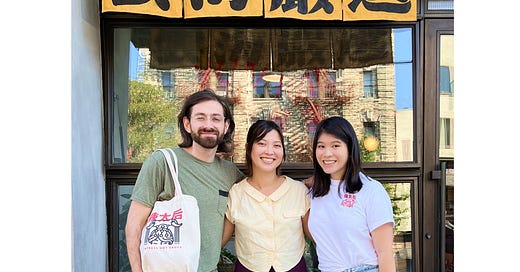


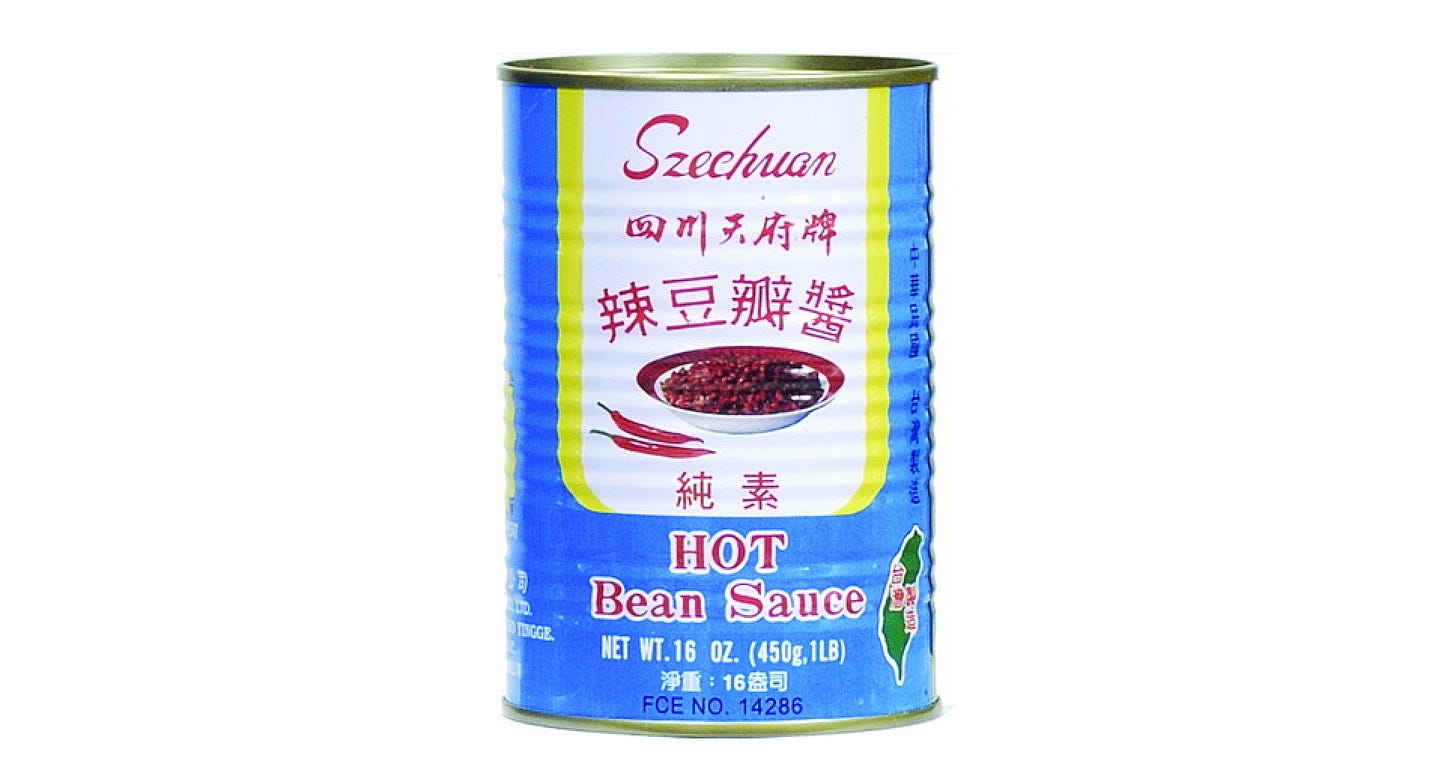
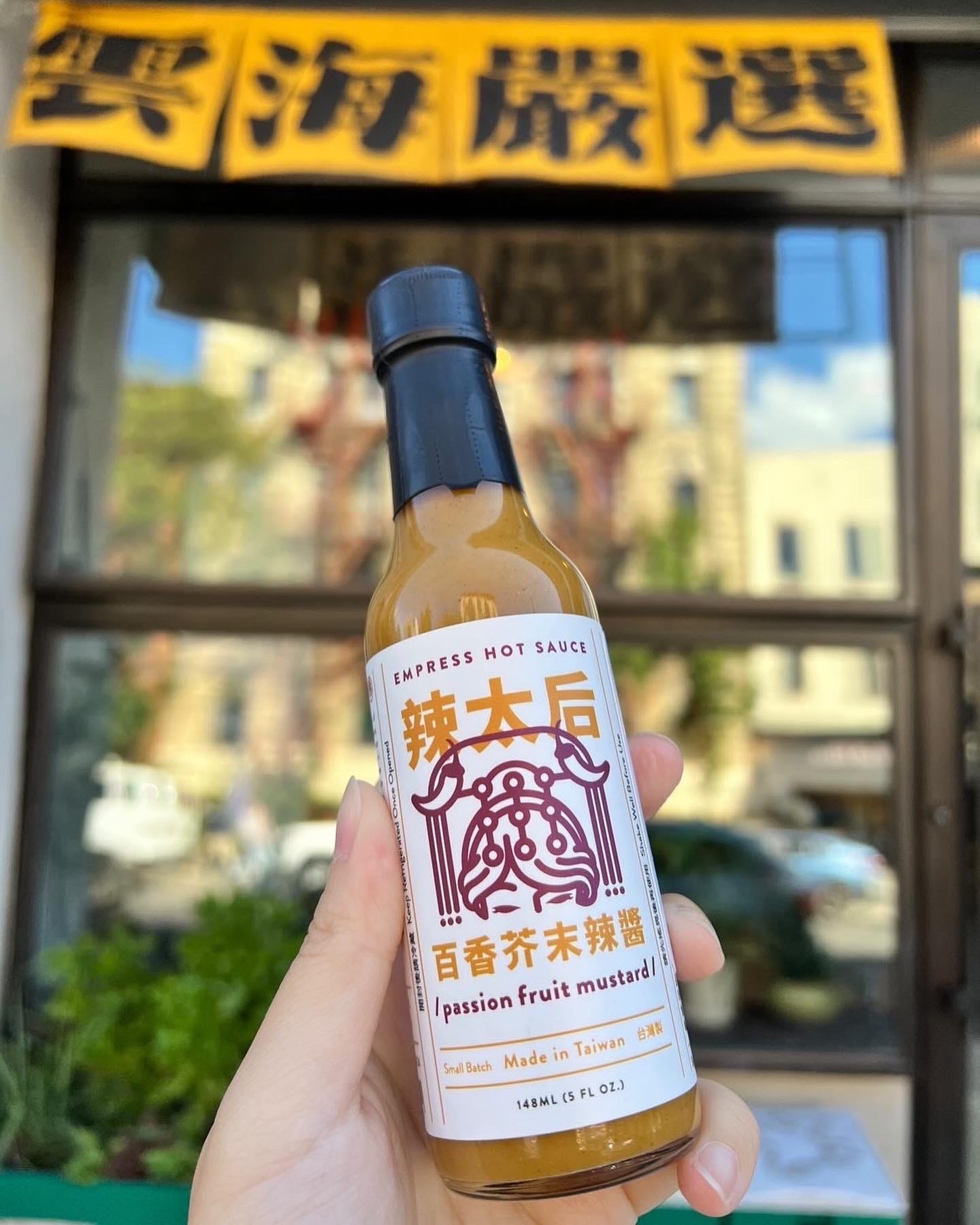

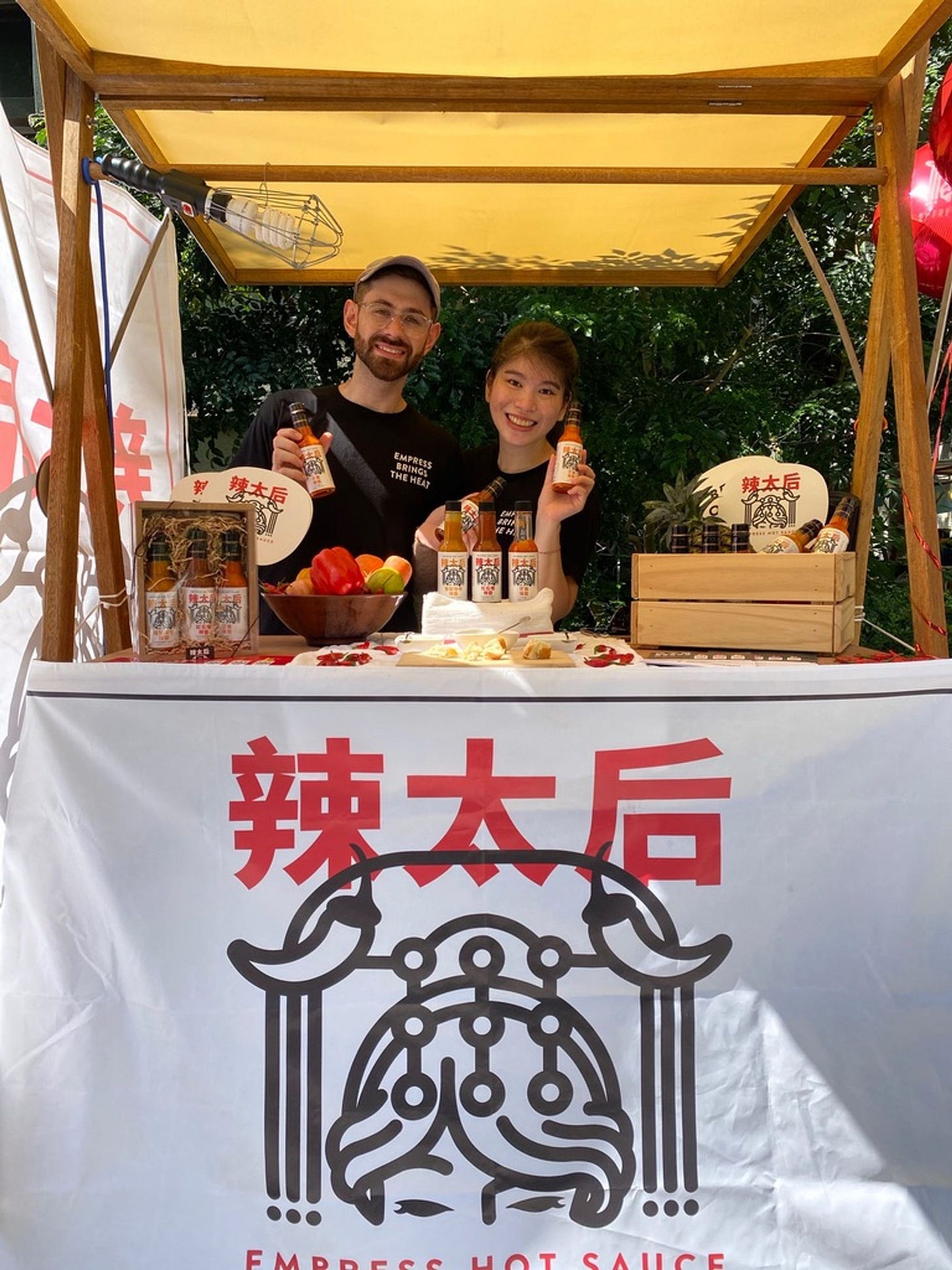
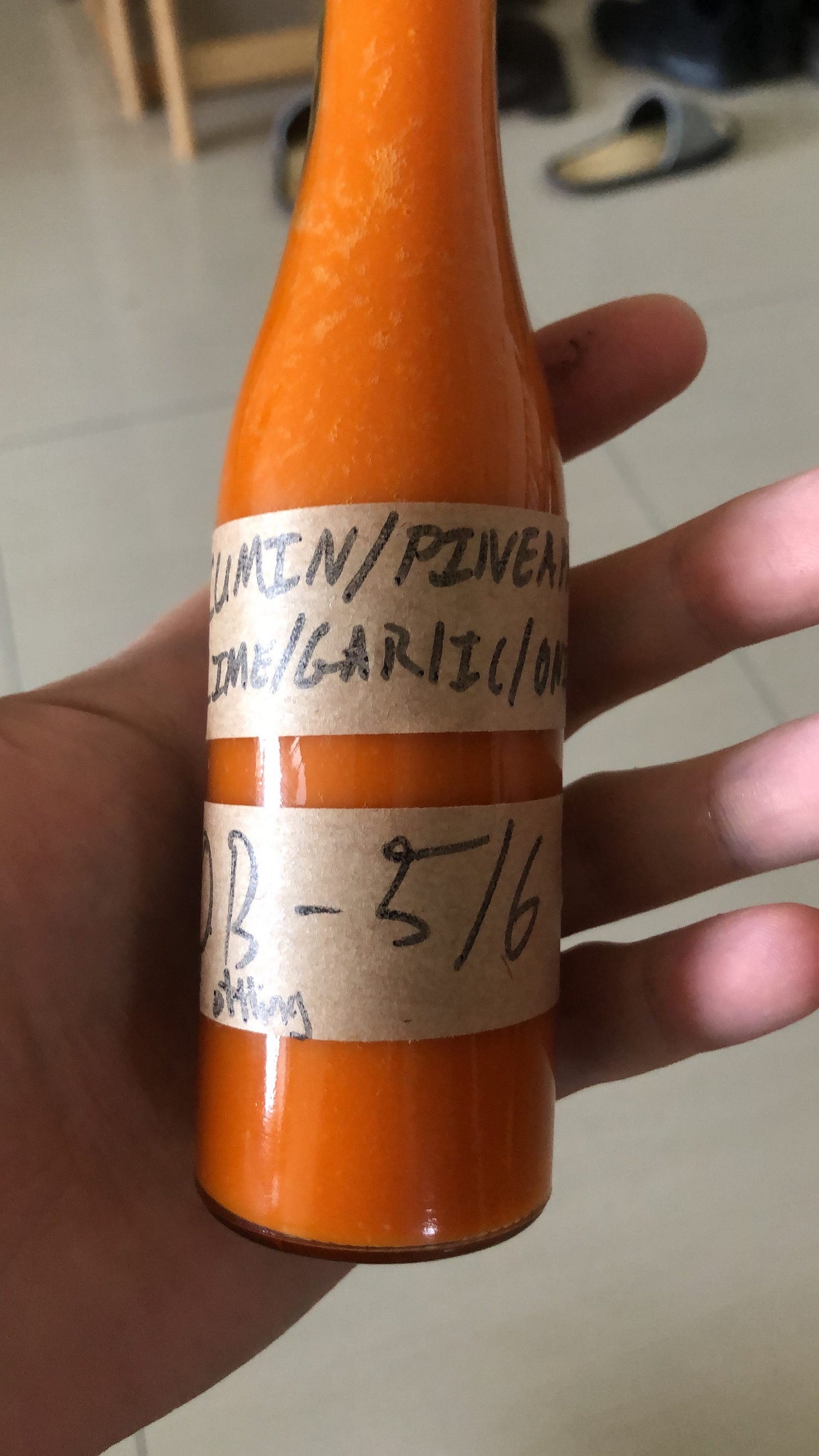
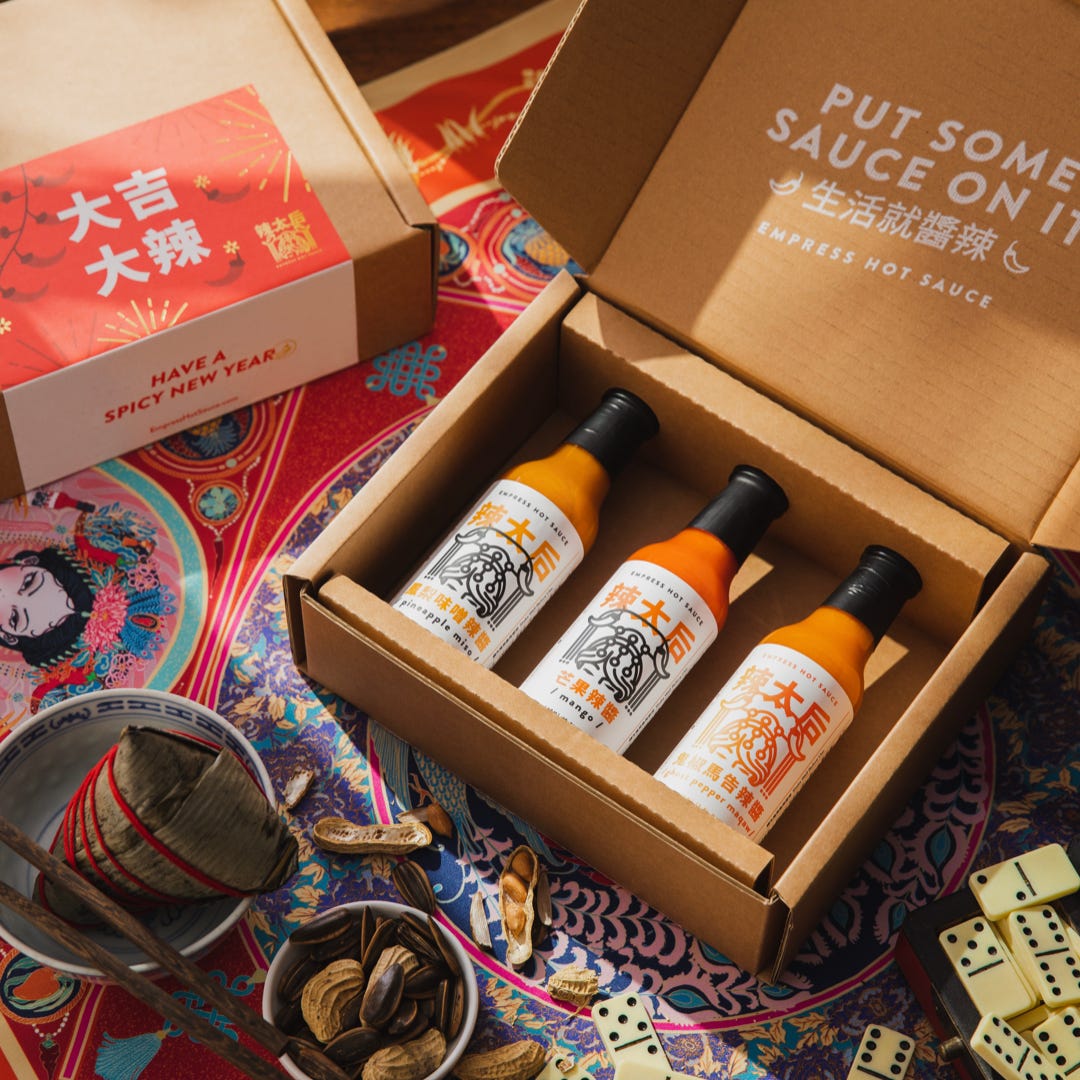

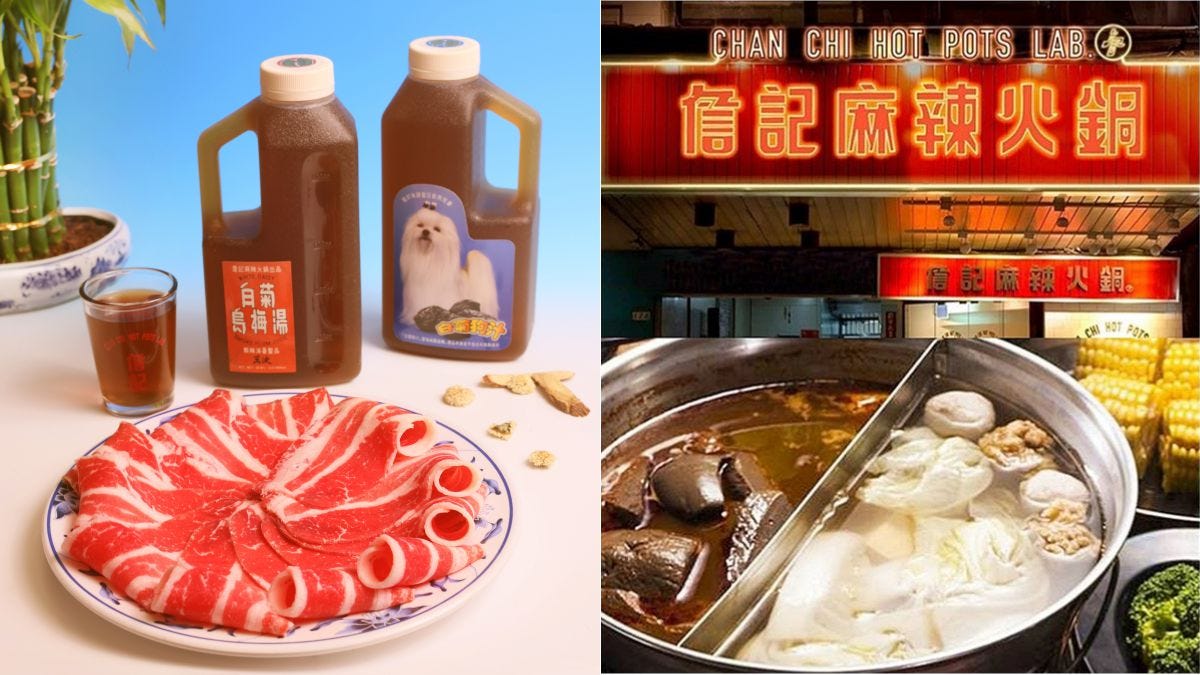
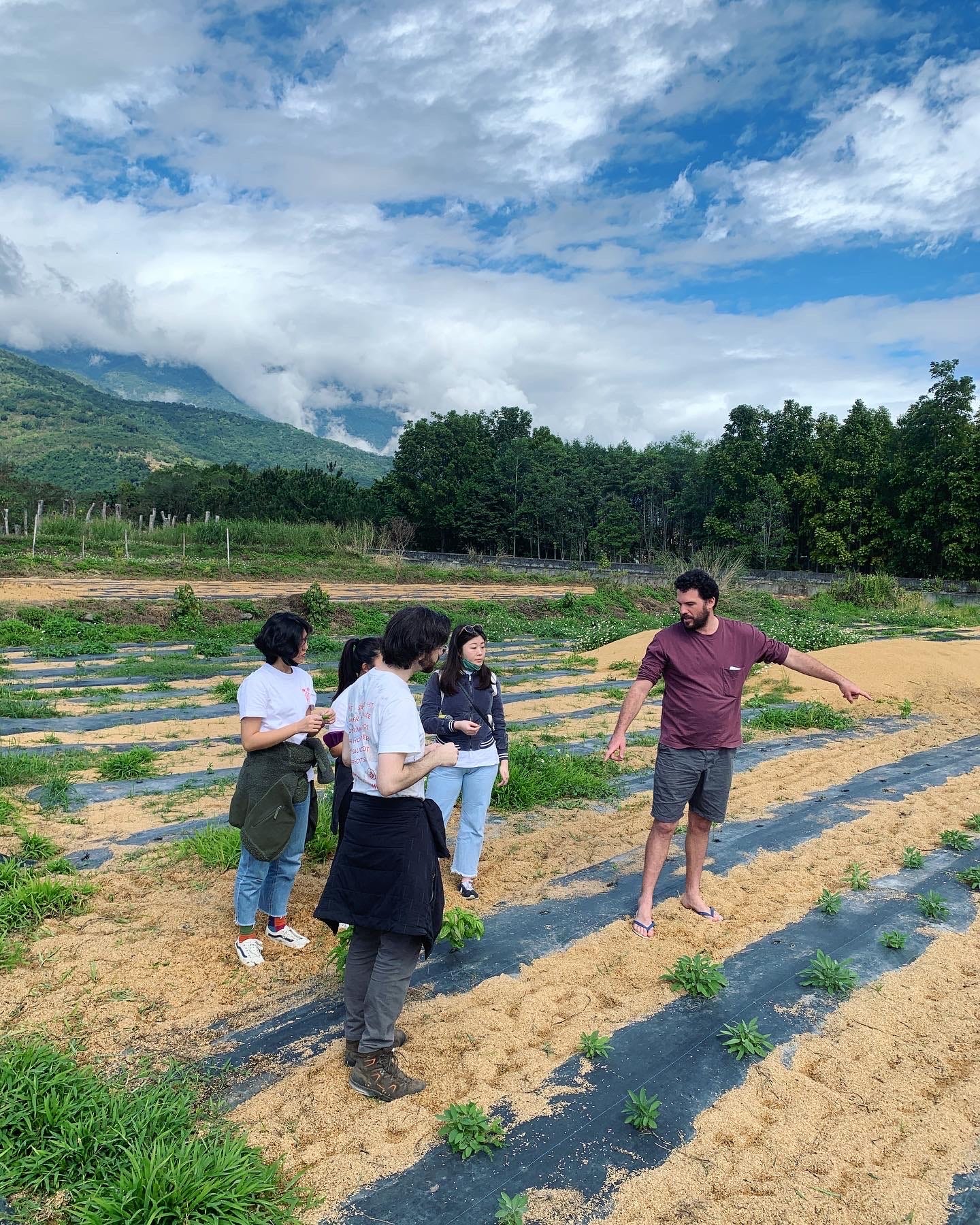

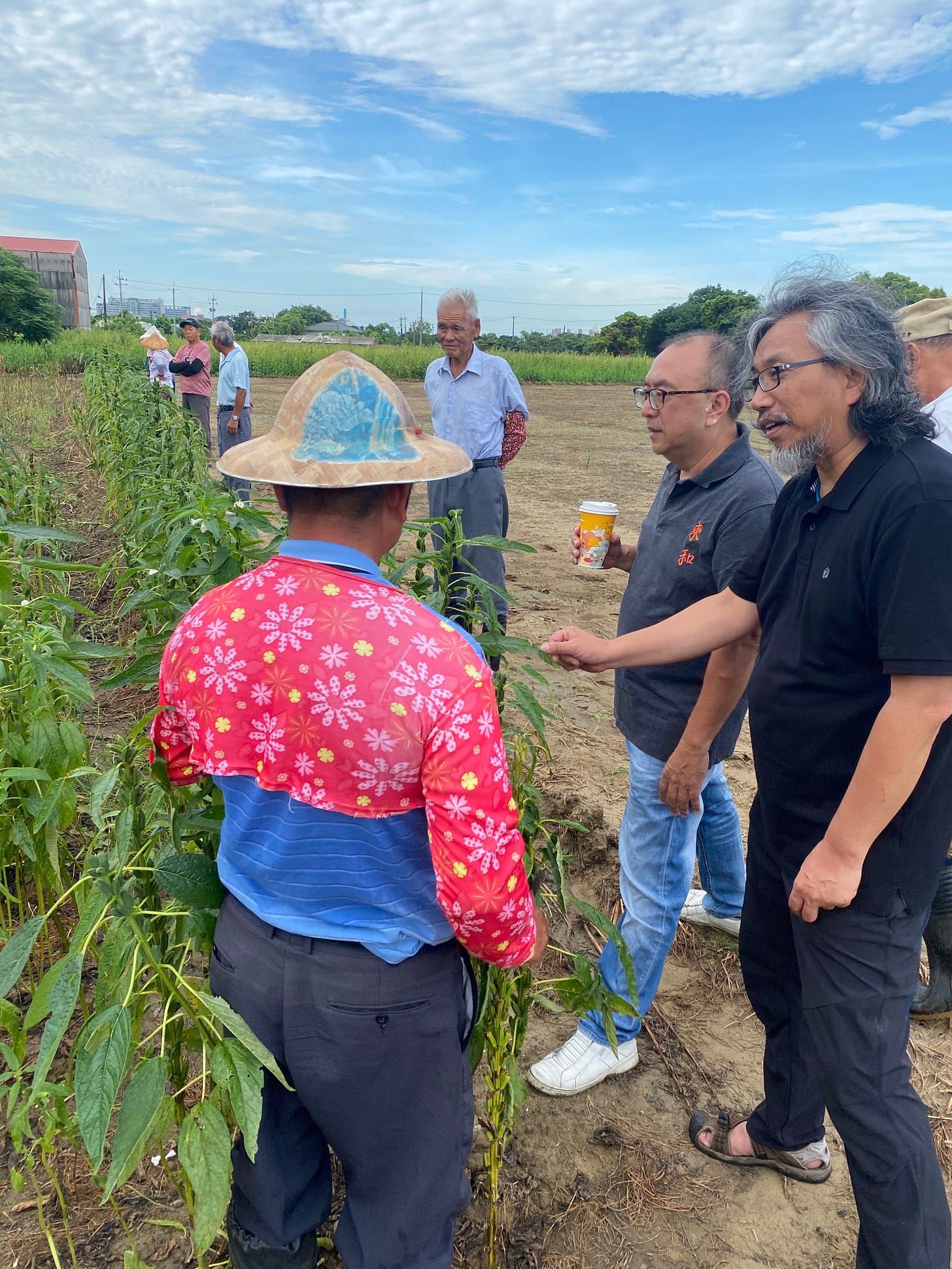
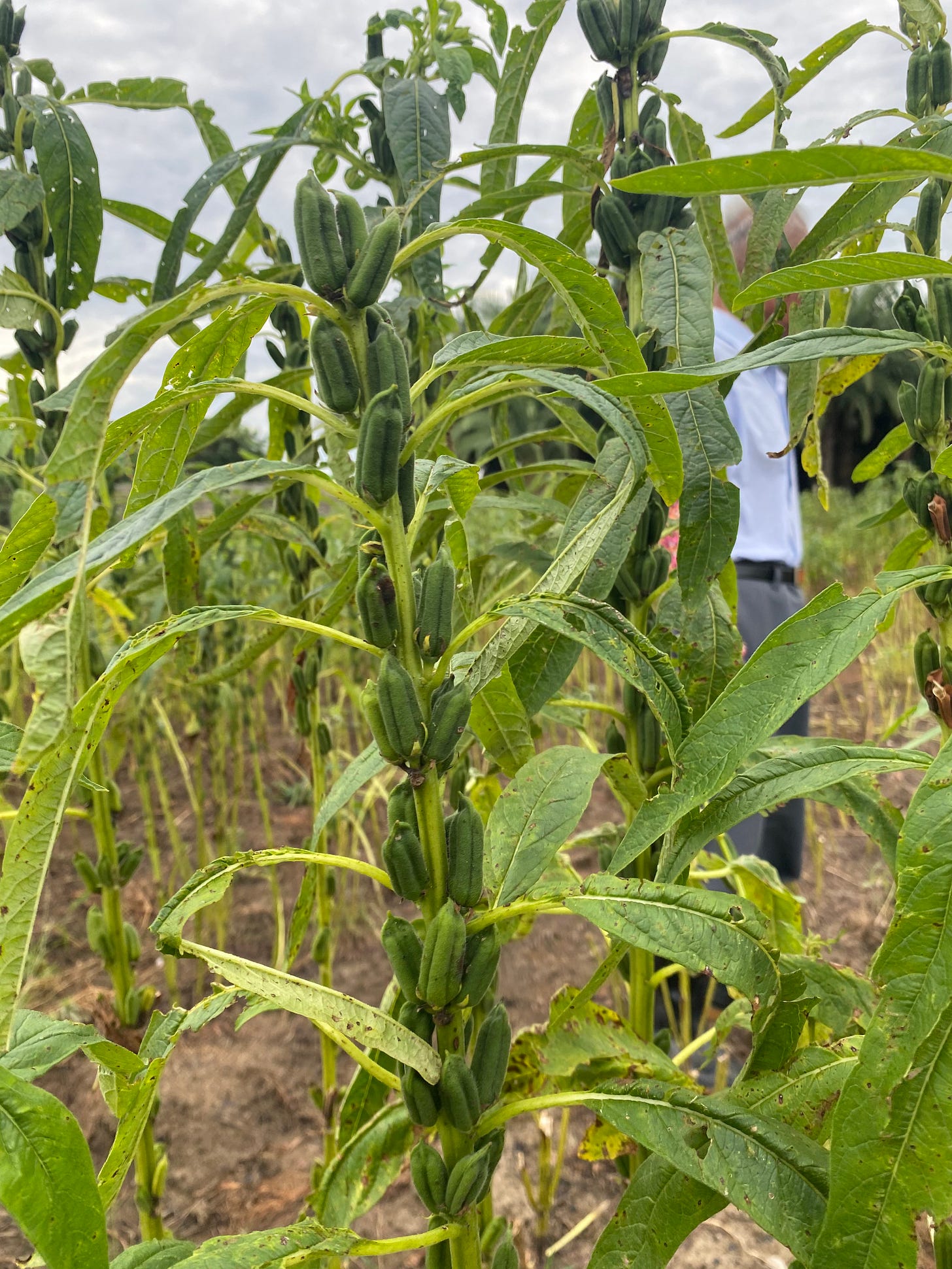
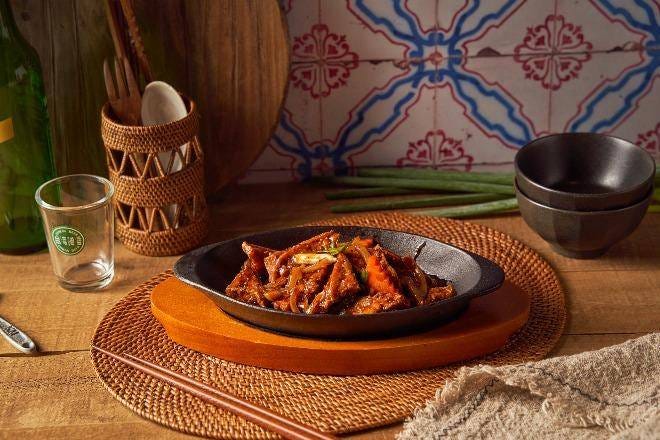

Lovely to learn about Empress Hot Sauce, and I loved to hear about how much the farmers value their crop!
By happy coincidence, I was also looking at vegan food in Taiwan, so this post was very timely. The Taiwan tourism board also put together a guide to vegetarian & vegan dining, which I've been skimming through: https://taiwan.net.tw/vegetarian/Food_en.pdf